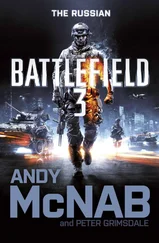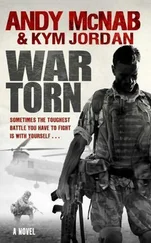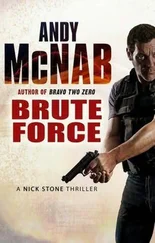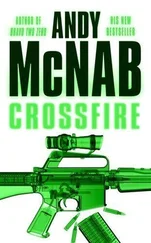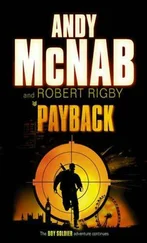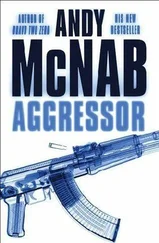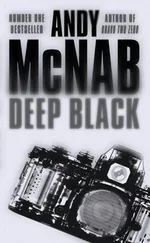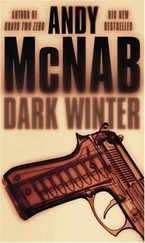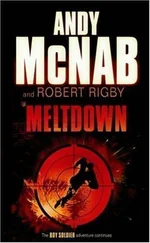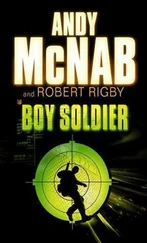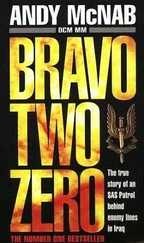‘Just don’t mention weapons of mass destruction,’ Julian had said. ‘They still can’t see the funny side of that particular load of bollocks.’
If this man ever did make it to the top, the Queen could sleep easy in her bed at night. The security of her dominions would be in good hands.
‘You ever had dealings with them?’
I shook my head. Not in ten years with the Regiment, or the same again as a deniable operator.
‘Well, they have in excess of four thousand staff on their books. More than six hundred are threat analysts. They’re good at what they do.’
Julian didn’t spot the box that had been left a couple of feet inside Squadron Leader Kettle’s doorway. He only stopped himself falling by shoulder-charging a filing cabinet. A couple of box files crashed to the floor, spilling old aircraft magazines across the well-worn carpet tiles.
I came in behind him. The office, without air-conditioning, smelt like a teenage boy’s bedroom, right down to the lingering whiff of illegal nicotine.
A stern-faced man in his early forties knelt to pick up the mags with the reverence of the obsessive collector. He wore a check flannelette shirt and brown tie that reminded me of the bed sheets I used to have as a kid. A half-eaten prawn sandwich lay next to an old-fashioned light box on his desk. Strips of film were scattered across the backlit glass. I’d thought transparencies had gone out with the Ark. Timely intelligence products? Binning the 35mm and going digital would have been a good place to start.
The squadron leader finished gathering up his mags, then retrieved the upturned box and set it on his desk. Using both hands, he carefully removed something resembling a mirror, roughly the size of a jam-pot lid, attached to a random collection of cogs and springs from an ancient grandfather clock.
He held it up to the window and gave it the once-over.
Double-glazing muffled the rumble of traffic and squeals from the excited Italian teenagers we’d passed minutes earlier as they jumped over the lions at the bottom of Nelson’s column and posed for each other’s camera phones. The stone of the plinths matched the colour of Kettle’s classic RAF handlebar moustache.
Thirty seconds had passed without any form of verbal or eye contact between us. Maybe the squadron leader wasn’t too happy about being called into the office on a weekend.
Julian tried to break the ice. ‘What’s that thing?’
Kettle glanced up and peered at us both for the first time. ‘That thing is the seeker-head of an AA-11 Archer – a Russian air-to-air missile.’
Julian was probably as unmoved as I was, but he was better at disguising it. ‘I thought you were a surface-to-air specialist?’
Kettle thawed a little. ‘I am. But during the nineties the Serbs adapted the AA-11 to fire from truck-mounted ground-launchers. It was surprisingly effective.’ He glanced between the seeker-head and Julian’s foot. ‘Lucky the Russians built them to last, eh?’
I pointed at the light box. ‘Holiday snaps?’
All Julian’s good work was undone. Kettle put the seeker-head down and stared at me. ‘You must be the chap who’s taking my place.’
Once my MoE into Iran had been agreed, somebody senior would have told him the good news: after months of anticipation he wouldn’t, after all, be going to Tehran; his place had been taken by someone else.
If Kettle was looking at me the way Dex had examined his plastic glass on the Emirates flight, it was with good reason. Julian had warned me that, for DIS specialists like him, field trips to events like IranEx were the culmination of years of mind-numbing analysis work that would have taken him no further than his office.
Kettle had built up a picture of what the Iranians were up to in the SAM (surface-to-air missile) weapons arena, increasingly vital with the current threat of first strikes by the US and the Israelis against Iranian nuclear facilities. He would have been aware that his meticulously crafted briefing documents on Iranian air defences were required reading within the Firm and the Ministry of Defence, occasionally even landing on a minister’s desk. The IranEx trip would have been his reward – a once-in-a-lifetime opportunity now the Iranians, eager for press coverage of their indigenous weapons industry, had decided to throw their doors open to the international media.
Kettle’s cover had been prepared long ago. He’d be travelling as a writer for a defence publication called Aerospace and Defence Technology Monthly – ADTM to those in the trade. His alias: James Manley, ex-RAF, divorced, and trying to make it in the notoriously badly paid world of freelance defence journalism. His passport was ready. His visa was ready. For several years he’d submitted articles under his assumed name to the wholly innocent editor of ADTM .
And at the moment he was all set to go – just as he was about to take the Labrador for a walk and pick up the Sundays – he’d had the phone call telling him to get into the office and brief someone who was going to fill his slot. After all that hard work he’d been mugged by some dickhead who didn’t know SAM from Samantha and didn’t even talk proper.
Julian looked at his watch. ‘I’ll leave you two to get to know each other. We don’t have much time and you have quite a lot to talk about.’ He paused by the door. ‘Call me as soon as you’re through and be as quick as you can. There’s a lot more to do before tomorrow.’
Kettle turned and gave me a look like I’d just run over his dog.
‘Listen, mate.’
There was nothing matey about his tone. The room temperature had dropped several degrees as soon as Julian closed the door. Fair one – in his shoes I’d have been pissed off too.
‘There’s nothing unusual about DIS posing as a freelance defence journalist. It happens all the time. The Russians know it happens. We know it happens. Bet you a penny to a pound, the Iranians know it happens, too. Defence exhibitions, no matter where they are, end up crawling with spooks. So, mate, whoever you are, at least you’ve got that going for you.’
Kettle had known better than to ask my name and I hadn’t volunteered it. I still hadn’t shaken his hand. The only good things were that I no longer noticed the smell and he hadn’t offered me a bite of his sandwich.
‘Right, so you want the one-oh-one on the fledgling Iranian missile industry so you can be James Manley, eh?’ He looked at the clock on the wall. ‘How long have we got?’
I hated briefings. And I hated government buildings – especially dust-filled places like this one. They brought back too many bad memories of too many bollockings. Besides, I just needed enough to make my cover story sound like I knew what I was on about. I was there for something more important than geeking up. I couldn’t wait to get out.
‘No more than two hours.’
Kettle went over to the filing cabinet and pulled open a drawer. He riffled through it, yanking out sheets of paper as he went. They turned out to be magazine articles.
‘Take them with you. Don’t worry, they’re all open-source – some recent pieces from Jane’s Defence Weekly and Aviation Week on the state of the Iranians’ air defences. You can bone up on it at your leisure, but here’s the short version. Don’t make the mistake of dismissing them as a bunch of no-hope, clueless Islamofascist rag-heads – they’re not. Since the Shah got deposed, they’ve built up an incredibly successful aerospace and defence industry. It’s in their blood. They’ve had to, given all the arms embargoes that have been imposed upon them over the years.’
I glanced at the articles. From everything I’d read, the embargoes had proved about as useful as an ashtray on a motorbike. ‘They’ve been getting technical assistance from everyone on Baby Bush’s axis-of-evil list, haven’t they?’
Читать дальше

